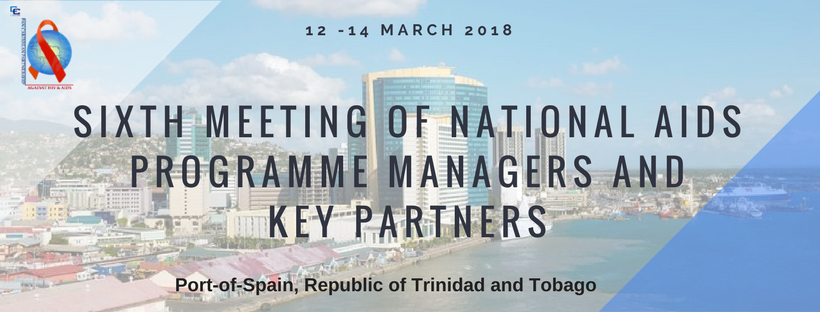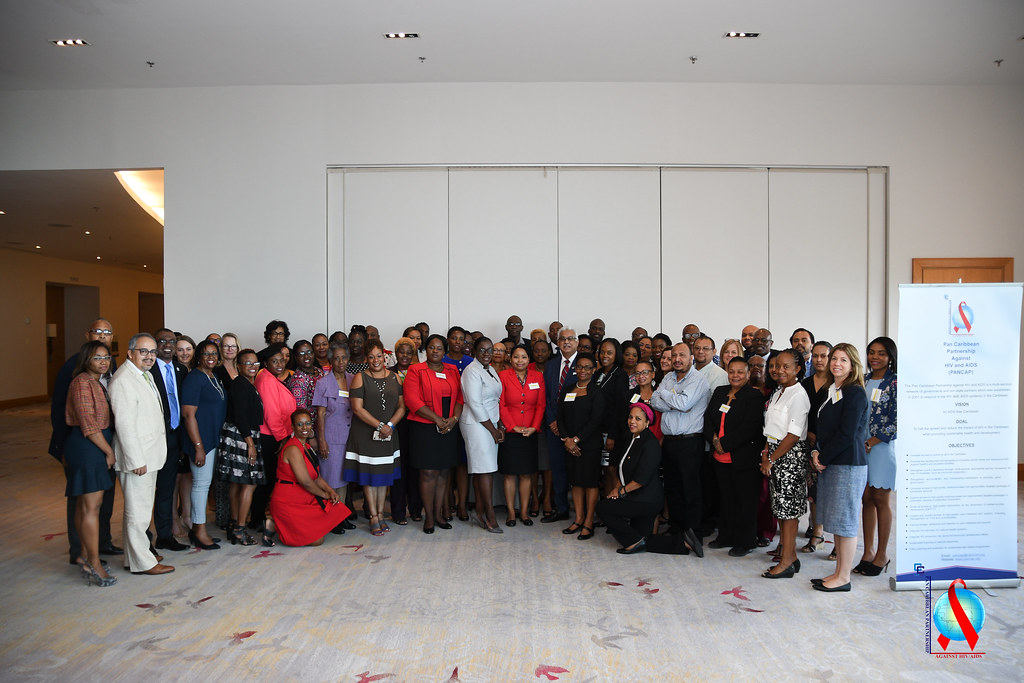Sixth Meeting of the National AIDS Programme Managers and Key Partners

Hyatt Regency Trinidad
#1 Wrightson Road
Port-of-Spain, Republic of Trinidad & Tobago
Tel: +1 868 623 2222
pancap@caricom.org
Event Summary
The NAP (National AIDS Programme) Managers and Key Partners meeting provides an opportunity for joint decision-making in setting programmatic priorities and partner contributions in order to strategically align efforts in the fight against HIV. The meeting is intended to allow for in-depth analysis and discussion on the post 2015 agenda, and the overall advancements of the Caribbean region in implementing new initiatives for HIV. Within this context opportunities and challenges for the region and countries to expand the national response will be discussed with the overall aim to advance the Caribbean region’s response. PANCAP acknowledges the need for greater attention to country-to-country linkages, greater collaboration with regional partners so as to maximise synergies, and for a mechanism which would bring regional public goods through national programmes to ensure on-the-ground impact.
Overall Objective:
The meeting will update programme managers and partners on national and regional commitments, progress on current global strategies, and identify innovative ways to address gaps and strengthen the Caribbean regional HIV response. The Meeting will facilitate information and best practice sharing; peer learning and technical cooperation among countries to strengthen ownership; improve harmonisation and sustainability of the Caribbean HIV response.
Event Description
The meeting will receive updates on strategies and activities for achieving prevention, including implementation of PrEP by some countries such as Bahamas, Barbados and Suriname and best practices for increasing HIV testing including self-testing which is being piloted in at least one Caribbean country. Participants will receive updates on EMTCT, including the identification of countries for validation in 2018 and a qualitative study on young men’s Sexual and Reproductive Health in Guyana which informed a gender transformative approach to reducing the target group’s risk and vulnerability. The meeting will also receive key highlights from the HIV Prevention Spotlight Report and Global AIDS Monitoring (GAM) data and UNAIDS Fast Track to achieving prevention.
The achievements and challenges related to treatment and care including retention and adherence will be discussed. Key population treatment cascade from Jamaica and Suriname will be shared and other countries will be encouraged to develop such cascades. Country experiences implementing Treat All over the last year will also be shared.
Integration as a strategy for sustainability of the response will be discussed within the broader context of integration into health systems and socio-economic development as articulated in the CRSF. The meeting will receive a consolidated report on the issues that have arisen from the regional discussions on integration and provide an opportunity for feedback and consensus on approaches for achieving sustainability.
The meeting will provide an opportunity for sharing the progress towards the development of the regional public goods being developed under the two regional Global Fund grants and the OECS sub-regional grant. Grant managers will share the achievements under the CARICOM-PANCAP, CVC-COIN and the OECS grants, as well as the synergies among these grants and other regional and national level activities and, will solicit feedback from participants. Development and regional partners, including The Global Fund, PEPFAR, LINKAGES, UNAIDS, CARPHA, CMLF, CBMP, AHF will provide updates on their activities being implemented at the regional and national level.
Lessons learned from the Transition and Sustainability exercise, including social contracting and key recommendations from donors to governments will be shared. The key outcomes of the November 2017 Latin America and Caribbean Third Forum will be discussed with particular emphasis on financing and sustainability
The meeting will also identify the key policy issues arising from the discussions over the three days for presentation to COHSOD in September 2018.
PANCAP will use the opportunity presented by this meeting to facilitate a Regional Dialogue for the new Caribbean Multi-country grant as a means of soliciting inputs from participants. Based on criteria, including key population prevalence data, decrease in funding allocations and proximity to transition, the Global Fund Board prioritized sustainability of HIV services for key populations in the Caribbean, aimed specifically at:
• Strategic support for the development of innovative service delivery strategies;
• Sustainability of community-led service delivery and monitoring;
• Supporting regional advocacy;
• Addressing legal barriers to access to services; and
• Laying the groundwork for continuity of services as part of the transition process.
Participants will be invited to discuss the following proposed strategic areas for the Multi-country Caribbean grant:
1. Advocacy to strengthen political support and increase domestic resources to fund effective key population HIV programming in the context of reaching universal health coverage.
2. Supporting key population organizations on resource mobilization strategies and partnerships development.
3. Supporting the reduction of structural barriers for access to services, including stigma and discrimination for key populations.
4. Supporting availability of strategic information and foster learning at the regional level to improve cost-effectiveness, quality, and efficiency of service delivery for key populations.
Overall Objective:
The meeting will update programme managers and partners on national and regional commitments, progress on current global strategies, and identify innovative ways to address gaps and strengthen the Caribbean regional HIV response. The Meeting will facilitate information and best practice sharing; peer learning and technical cooperation among countries to strengthen ownership; improve harmonisation and sustainability of the Caribbean HIV response.
Specific Objectives:
• Assess the Region’s response to date, including progress and challenges towards the achievement of the 90-90-90 targets.
• Discuss and agree on strategies for the sustainability of the HIV prevention, treatment and care services in the Caribbean.
• Discuss the issues arising from regional and national level discussion on integration as a key strategy for sustainability.
• Discuss the achievements and synergies of the PANCAP and CVC-COIN and OECS Global Fund grants and the transfer of regional public goods being developed under these grants.
• Receive updates from development and regional partners on programmes and activities that are contributing to the achievements of the goals and targets of the CRSF.
• Discuss lessons learned from Transition and Sustainability exercise including social contracting, and key recommendations from donors to governments.
• Identify key policy issues for COHSOD’s approval in September 2018.
• Facilitate a regional dialogue to solicit participants’ input for the Caribbean Multi-country proposal.
Expected Outcomes:
1. Agreement on approaches for integration as a key strategy for sustainability.
2. Strategies for sustaining HIV prevention, treatment and care services.
3. Summary of the gaps in the regional response and remaining challenges to achieving the 90-90-90 targets and support needed to address each of three targets
4. Achievements of the regional Global Fund grants to date.
5. Partners contributions to the targets of the CRSF
6. Lessons learned from transition and sustainability exercise.
7. Key policy issues for presentation to COHSOD

